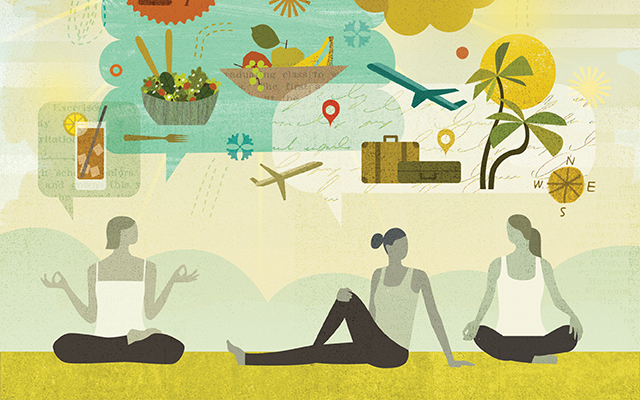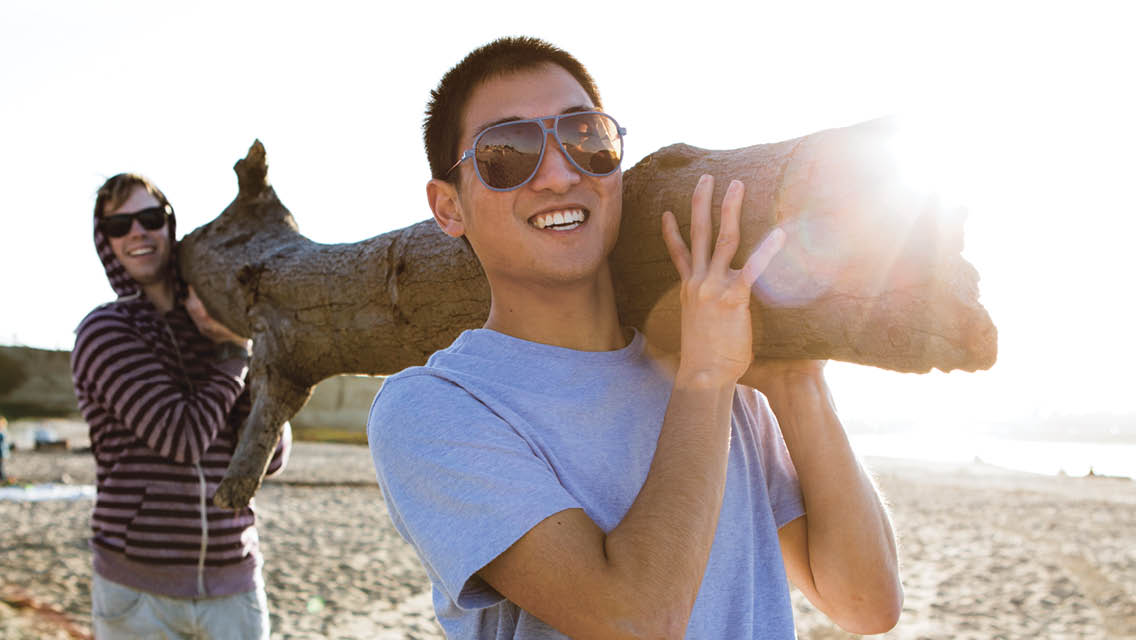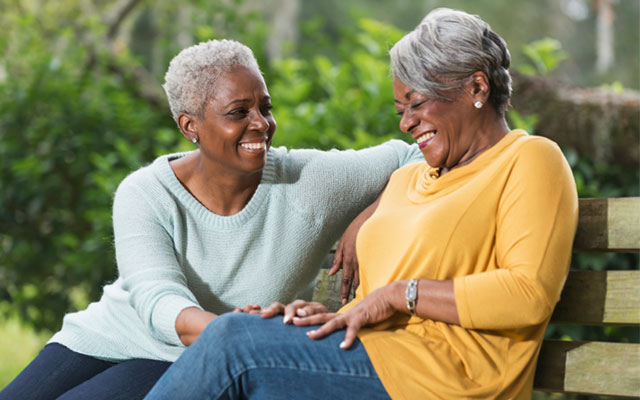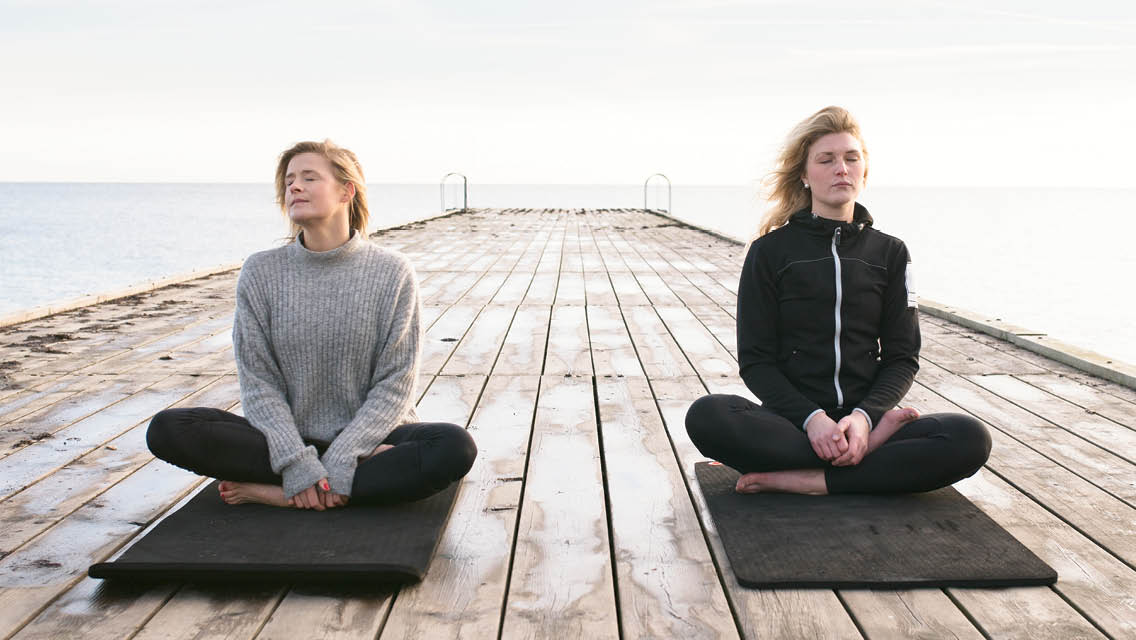Lifelong bonds with friends are wonderful but not always possible. Adult friendships frequently take a back seat to jobs and spouses and children. Sometimes partnerships end, and we’re no longer comfortable in the same networks as our exes. Or there’s a global pandemic, and the ability to meet new people organically in a public setting is severely hampered.
And then there’s geography. After you’ve relocated — once or multiple times — frequent phone conversations with dear friends often dwindle into occasional Facebook posts.
That’s what happened to Kia Wakefield. She was headed toward 30. After moving seven times in five years, she found herself in another new city, lonely and struggling to make friends. She writes about her experiences in Social Elephant: New Rules for Making Friends in Our Changing Social Economy. “Friendlessness makes a person feel inadequate. That creates a cycle, because we bring those feelings of inadequacy to the table.”
Self-doubt is only one of the challenges. “When we get older, it’s harder both internally and externally,” says psychologist Elizabeth Lombardo, PhD, author of A Happy You. “Externally, we’re simply not exposed to as many people — and it’s less expected that you’ll become friends.”
Internally, she adds, we often have a lot more negative self-talk, telling ourselves that so-and-so has enough friends. When we’re younger, we are less likely to second-guess ourselves, and we’re a little less selective. Consider how children on their way to an adult event ask, “Will there be any kids there?” That’s their sole criterion for a possible good time.
“As we get older, there can be a lot of fear around making friends,” says Nicole Sbordone, LCSW, author of Surviving Female Friendships. Asking a new acquaintance to coffee or lunch can make the most outgoing person feel vulnerable. Some vulnerability is required for friendship — trust and intimacy are built when we reveal ourselves, at least a little — but knowing when to open up can be tricky.
For all these reasons, friendship often gets pushed to the bottom of priority lists. “It’s kind of like exercise: ‘I’ll do it when I have time,’” Lombardo says.
Worth the Investment
Friends are nice, but do we actually need them? Research says yes. If the pleasure of human company weren’t enough to confirm it, there are myriad ways that friendship — and its lack — has been shown to influence health. “By middle age, lonely adults consume more alcohol and engage in less vigorous exercise,” writes social neuroscientist John Cacioppo, PhD, in Loneliness: Human Nature and the Need for Social Connection. “They sleep just as much as the non-lonely, but their sleep is less restorative . . . and they report more daytime fatigue.”
Conversely, other studies suggest that our pain thresholds rise when we’re laughing with friends. Friendship helps ward off cognitive decline. And having friends even strengthens the immune system. The famed Nurses’ Health Study showed that women who had 10 or more friends were three times as likely to survive breast cancer.
Yet time with friends can still feel like an extravagance. “People can hear those benefits and still view friendship as a luxury,” says psychologist Andrea Bonior, PhD, author of The Friendship Fix: The Complete Guide to Choosing, Losing, and Keeping Up With Your Friends. “Because maybe they have to care for everybody else. But friendship is actually good for your family.”
All the more reason to make an effort to build your circle when you haven’t connected for a while.
Inviting a new person out can be awkward, so Bonior suggests making invitations casual — and don’t hesitate to joke around about your nervousness if you feel it. “Acknowledging the weirdness makes it a lot easier,” she says.
And she suggests treating these meetings as an experiment, much like dating. “Nobody expects to marry the first person they go on a date with, so why are we so hard on ourselves if a friendship doesn’t get off the ground?”
It’s also helpful to adjust the expectations we place on our adult friends. Not every pal needs to be a confidante, says Marla Paul, author of The Friendship Crisis: Finding, Making, and Keeping Friends When You’re Not a Kid Anymore. She believes that light-hearted friendships are not superficial — and they’re necessary.
“Your friendship menu needs a range of both intimates and acquaintances,” she writes. “Think of them as concentric circles. You should have an inner ring of close friends with whom you can share and who will rally around you in an emergency. And you need an outer band of casual friends and social groups that offer companionship and a sense of belonging.”
That outer band might include work colleagues, neighbors, and members of your meditation center or gym. And meet-ups with online groups are an easy way to build new connections. These are people with whom you already have shared interests.
Same goes for the well-worn cliché that you should take classes or join a book group, tennis club, or basketball team to make new friends: You already know you have at least one thing in common with everyone there.
Taking the Risk
What do you do if you want to build deeper connections with people you see only occasionally? “Continuity is important,” Bonior says. “Often, people will steer away from follow-up questions because they’re afraid of prying, but people like it when you remember details about their lives.”
So, the next time the person on the mat next to you in yoga class returns from a vacation, ask how it went. “It’s about being willing to stick your neck out,” she adds.
This is precisely how Jo Maeder — who at 47 moved from her adopted home of New York City to Greensboro, N.C. — met one of her best friends.
Maeder, an author, had relocated to take care of her ailing mother. The financial toll made it impractical to return to New York City when her mom died. “I was unmarried, childless, and not a member of a church. I kept looking for work and love there, hoping that would change.”
Then one day at her local café, Maeder saw two women chatting and laughing. “I walked over and said, ‘You two look like you’re having so much fun. Do you mind if I sit with you while I wait for my order?’ One of them was Rita. We became Facebook friends. Then she came to a community event I started called the BookUP. After that, she invited me to talk to her book club.”
The two became fast friends and still are, proving that a little discomfort can sometimes make life a whole lot better.
What Makes a Good Friend?
To have good friends, you must be a good friend. The following telltale signs are adapted from Andrea Bonior’s The Friendship Fix.
- Good friends have real meaning in each other’s life. Your best friends are among the first you share your good and bad news with — the deeper, more meaningful news beyond what you post online. These friends are privy to your important moments and are not an afterthought.
- Good friends give each other feedback about their friendship: Your best friends let you know you mean a lot to them, and vice versa. Some people aren’t prone to sentimentality, and validation about how happy friends are to spend time together may come with gentle teasing.
- Good friends attract people who become good friends. Enough said, right?
- Good friends feel comfortable together and treat each other well. You let your guard down around each other and find it easy to open up with your thoughts and concerns.





This Post Has One Comment
What if you are always the one initiating contact? I have several longtime friends, but the only way I hear from them is when I text them and ask them to get together.